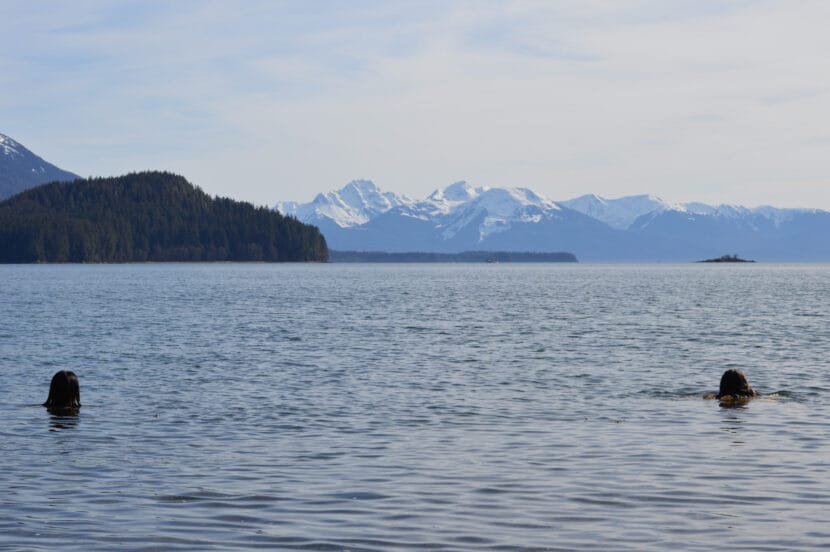
This is Tongass Voices, a series from KTOO sharing weekly perspectives from the homelands of the Áak’w Kwáan and beyond.
Haa Tooch Lichéesh Coalition is a nonprofit that offers Indigenous-based healing practices and reconciliation with the violent history of colonization and its impacts on Juneau’s community today.
One of these traditional practices is a dip in the ocean, for strength and healing. It’s methodical and intentional — participants walk in up to their knees, then stop, then up to their waists, then stop, and so on until they are as far in as they feel comfortable. Afterward, participants warm themselves by the fire.
We spoke to Ḵáaḵ’utx̱éich Kai Monture and organizer Saan Jeen Jennifer Quinto about the clarity they find in the frigid waves.
This transcript has been edited for length and clarity.
Kai Monture: My names are Ḵáaḵ’utx̱éich and Eeḵ Kahaa Ḵáa. My English name is Kai Monture. I come from Yakutat from Tsísk’w Hít, the Owl House.
My intention for this dip is to introduce my three nephews here who are Teiḵweidí from Yakutat. They just moved back to Lingít Aaní this December, just started to reconnect to their Lingít side. Now this is their very first dip.
Saan Jeen Jennifer Quinto: The coldness of the water is like the overwhelming moments when we’re in our daily lives. And because we’re not taught how to process and confront those overwhelming moments, like in school or other places, and we really don’t have guidance in that way, I use the water to help teach me how to navigate those really overwhelming things.
That overwhelming cold sensation is what I equate to those things that we need to start confronting and learn how to navigate in our daily lives.
Kai Monture: I was very lucky to be raised by my grandparents, Elaine Abraham and George Ramos. And they were very traditional. My grandpa in particular taught me a lot about the training of the X̱’éig̱aa Ḵaa which translates to “a true or authentic person.” And that was the title of our traditional warriors.
Their training began when a boy was six or seven years old. He would go to live with his maternal uncle, who would raise him from that point on. And one of the core parts of their strength training was going into the ocean at sunrise almost every day of their life.
It was always a practice I was really fascinated by but something I actually didn’t start until my adult years. Just from personal experience, it was just like the way my grandparents were describing it to me, as a way to test and build up your toowú latseen, your inner strength.
The cold obviously is so hard on the body. But the strength of your heart and your soul can like do wonders, especially when you test it for yourself.
I think a lot of people that are scared to try and reconnect to this practice would really be surprised by themselves.
I actually was scared Soriano is too small. But he really really insisted he would try it.
Yvonne Krumrey: How was it?
Soriano: Cold.
